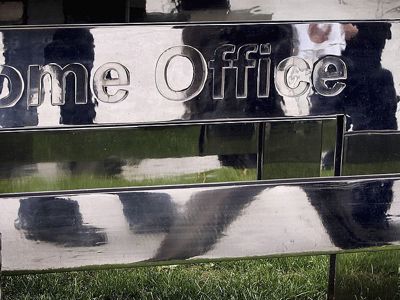
Child trafficking victim entitled to back payments after Home Office and Barnet Council left him without adequate care and support
The High Court has ruled that the London Borough of Barnet failed to meet its duties towards a victim of child trafficking after he received no specialist support from either the council or the Home Office for several years.
Posted on 18 December 2023
The judge found that the Home Secretary owes AM back payments for a period when they incorrectly claimed they did not need to provide him with trafficking-related financial support.
The ruling comes after the 22-year-old Eritrean national, referred to as AM, won a judicial review of the council and the Home Office’s handling of his case after a hearing in the High Court in July this year.
AM, who has been granted refugee status in the UK, was left traumatised after suffering repeated episodes of violent exploitation and trafficking as a child. This included being held captive, tortured and forced into domestic servitude by a criminal gang in Libya.
AM was recognised as a likely victim of child trafficking by the Home Office soon after seeking asylum in the UK at the age of 16. Despite this, neither the Home Office nor Barnet Council provided him with specialist support to help him with his recovery for nearly three years during his childhood and transition to adulthood.
In a judgment handed down on 1 December, Mr Justice Lane found that Barnet Council had failed to consider whether AM was a victim of human trafficking and to take this into account when assessing his needs and planning his care. The judge ruled that Barnet Council failed to meet its duties under the Children Act and other care regulations and this constituted a breach of the Council of Europe Convention on Action Against Trafficking in Human Beings (ECAT) and the European Convention on Human Rights (ECHR).
While taking account of the pressures under which Barnet Council operates, Mr Justice Lane noted that social workers and other staff ‘did not turn their minds to whether [AM] may have been a victim’ and the council did not do enough to obtain information about AM and his trafficking experience. He found Barnet Council’s ‘inaction in the present case was Wednesbury unreasonable’, meaning that the inaction was so unreasonable that no reasonable person acting reasonably could have acted in this way.
AM’s lawyers at Leigh Day argued that the failures significantly affected his ability to recover from his experiences of child trafficking and that his experience was not an isolated case. They pointed to the lack of clarity around who is responsible for supporting child victims of trafficking and cited evidence from ECPAT UK, a charity working on child trafficking issues, showing the needs of victims are frequently not met by the authorities.
The court rejected AM’s related arguments that the Home Secretary should be required to take responsibility for making arrangements for child victims of trafficking, finding she was not in breach of her obligations under ECAT and the ECHR. Instead, the judge found that local authorities are responsible for ensuring that the needs of child victims of trafficking are met holistically. However, the Home Secretary was responsible for meeting AM's needs as a trafficking victim once he became an adult.
AM was represented by Carolin Ott of Leigh Day who instructed Shu Shin Luh of Doughty Steet and Grace Capel of Garden Court.
Leigh Day solicitor Carolin Ott represented AM. She said:
“Despite our client being clearly identified as a victim of child trafficking on his arrival in the UK, Barnet Council failed to recognise his status and provide him with vital, targeted support to help him deal with the trauma of his experiences. Later the Home Office also did not provide him with the support he should have received after he became an adult. Although we welcome the outcome of this case, it highlights how the system still fails to provide many victims of child trafficking with the support they need, often with potentially serious consequences for their development and safety. The UK has a duty under both international and domestic law to provide for victims of child trafficking, instead thousands are being left without adequate state support to help them recover.”
Patricia Durr, CEO of Every Child Protected Against Trafficking (ECPAT UK) said:
“We welcome the judgement in the case of AM and the recognition of how severely he was failed as a child victim of trafficking and a looked after child, by both the local authority responsible for his care and the Home Office once he became and adult. It is an all too common experience that child victims of trafficking are failed, that their needs are overlooked and that there is no specialist support offered to them that recognises their experiences of abuse as victims of some of the most horrendous crimes.
“Local authorities are required to undertake comprehensive assessments of children’s needs and provide as any reasonable parent would. The Home Office is required to provide support to victims of trafficking. We are pleased that AM will receive back-payment of financial support due to him, but current practice by both Local Authorities and the Home Office means that support for child victims remains a postcode lottery and will continue to result in further serious detriment to children achieving stable futures.”




